FEATURED STORY
Crocodile close-up in Cuba wins photo awards  GLOBAL – Run by the Mangrove Action Project, the competition – now in its eighth year – aims to show the relationships between wildlife, coastal communities and mangrove forests, as well as the fragility of these unique ecosystems, both above and below the waterline. Gardens of the Queen is an archipelago off the coast of Cuba and has been strictly protected since 1996. It is one of the most untouched marine ecosystems in the world. “The healthy population of American crocodiles is down to the pristine condition of the mangroves, and I wanted to capture close-ups of this gentle giant in its natural habitat,” said Ms Houppermans. “I hope this image can illustrate that protecting areas like this is so critical.” Mangroves are an important protection against climate change, with one acre (4,000sq m) of mangrove forest absorbing nearly the same amount of carbon dioxide as an acre of Amazon rainforest. The forests also protect coastlines from eroding, as intense storms grow more frequent. “The Mangrove Photography Awards has become a platform to intrigue people about the magnificent ecological role mangroves play in all of our lives”, said judge Dhritiman Mukherjee. Fellow judge Octavio Aburto added: “The images from this year captivated our imagination…. giving us hope and illuminating a positive future for mangrove ecosystems.” READ MORE GLOBAL Restoration “Playbook” calls for political, economic, and social change

GLOBAL – International forest and climate experts have a “playbook” for ecosystem restoration with a set of 10 principles that they say, if followed, could be a game-changer. The Political Ecology Playbook, published in the journal Global Environmental Change in Nov 2021, recognizes that issues such as climate change and forest loss are not just biophysical and environmental problems, but are also deeply political, economic and social. The playbook was written to support the U.N. Decade on Ecosystem Restoration (2021-2030). Many of the ideas in it are already embedded in the U.N.’s language and framework, such as integrating Indigenous knowledge and practices into ecosystem restoration initiatives. However, according to the authors, this is the first time all of these principles have been laid out in a published playbook format, calling for action. “Restoration is often seen as a quick fix to repair ecosystems after making mistakes,” said Robin Chazdon, a professor at the University of the Sunshine Coast, Australia, and one of the article’s nine authors (who happen to all identify as women). “But it is even more important to recognize these mistakes and avoid repeating them, as they also perpetuate social inequities.” READ MORE AFRICA Renewable energy powered ovens help Cameroon fish smokers curb mangrove forest degradation
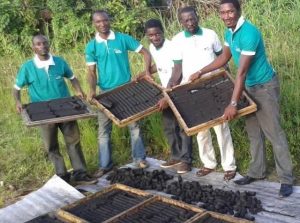
CAMEROON – Local councils, NGOs and other stakeholders are backing government’s efforts to protect mangroves with the use of alternative energy other than fuel wood for cooking and drying fish by the local communities. In the coastal towns of Batoke, Idenau fish traders are doing brisk business thanks to the installation of solar-powered ovens to dry fish, preventing what used to be massive destruction swathes of mangrove forest for firewood and spoilage from a lack of other preservation methods. Fish smokers in these communities say the renewable energy project has improved on their awareness and knowledge about mangrove protection. “We have come to learn about this new method that permits us dry our fish without much stress with the use of solar ovens and protect our forest,” says Joan Dione, a fish smoker in Idenau whose business is driven by customers from big cities in Cameroon and neighbouring Nigeria and Gabon. READ MORE Low-cost adaptation options to support green growth in agriculture, water resources, and coastal zones
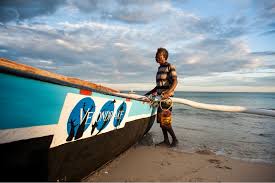
WESTERN AFRICA – The regional climate as it is now and in the future will put pressure on investments in sub-Saharan Africa in water resource management, fisheries, and other crop and livestock production systems. Changes in oceanic characteristics across the Atlantic Ocean will result in remarkable vulnerability of coastal ecology, littorals, and mangroves in the middle of the twenty-first century and beyond. In line with the countries’ objectives of creating a green economy that allows reduced greenhouse gas emissions, improved resource efficiency, and prevention of biodiversity loss, we identify the most pressing needs for adaptation and the best adaptation choices that are also clean and affordable. According to empirical data from the field and customized model simulation designs, the cost of these adaptation measures will likely decrease and benefit sustainable green growth in agriculture, water resource management, and coastal ecosystems, as hydroclimatic hazards such as pluviometric and thermal extremes become more common in West Africa. Most of these adaptation options are local and need to be scaled up and operationalized for sustainable development. Governmental sovereign wealth funds, investments from the private sector, and funding from global climate funds can be used to operationalize these adaptation measures. Effective legislation, knowledge transfer, and pertinent collaborations are necessary for their success. READ MORE AMERICAS PODCAST: Protecting Paradise – Mangrove Action Project: Cassandra MacDowell

CAYMAN ISLANDS – This week we chatted with Cass MacDowell from the Mangrove Action Project and Rangers! Mangroves play a massive role on our islands and we are going to learn all about how and why we should protect them! To learn more about the program, go to their website: https://www.mangroverangers.ky And follow them on all social media @mangroverangersky Thank you to BOBO 89.1 FM and our silent sponsors, and remember you can’t care if you don’t know! LISTEN HERE Dirty shrimp farms are punching a huge hole in the environment. A.I. could cut it in half

USA – Inside a humid warehouse in suburban Indianapolis, a company called Atarraya is using large metal containers and the latest technology to grow shrimp hundreds of miles from the ocean. At one end of the hangar-like building sit blue metal boxes that look similar to shipping containers. But instead of holding cargo for transport, they’re designed to grow Pacific whiteleg shrimp anywhere in the world, overseen by employees who don’t require specialized training. “The software does all the heavy lifting,” Daniel Russek, CEO of Mexico City– and Indianapolis-based Atarraya, tells Fortune during a tour of the company’s newly launched U.S. operation, which includes a small office building and a warehouse that it plans to fill with 20 of the micro shrimp farms. The software Russek refers to is cloud-based artificial intelligence that monitors water quality, regulates temperature and oxygenation, and feeds the shrimp. For Russek, the concept is a bet that Atarraya will be able not only to sell locally grown seafood itself but also to franchise its Shrimpbox technology to seafood distributors or farmers, whether they have aquaculture experience or not. READ MORE ASIA Caring for mangroves is just as important as restoring them
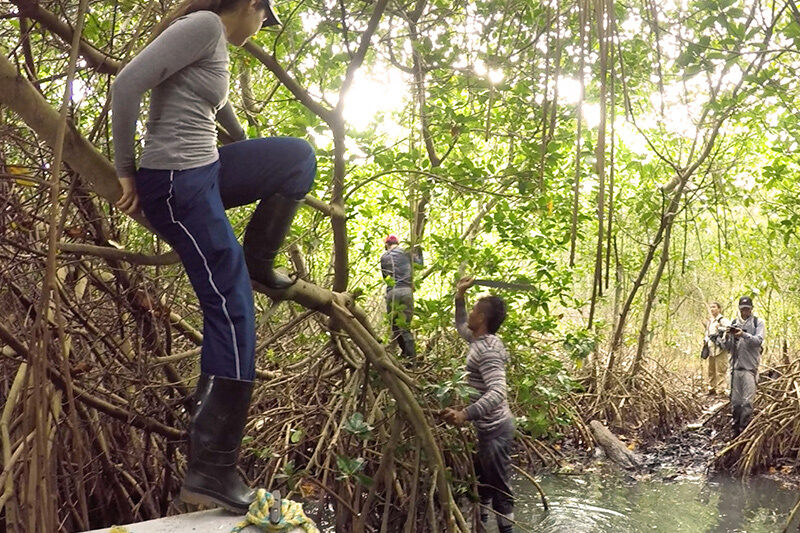
INDONESIA – Indonesia is betting big on mangrove restoration in its contribution to global climate change mitigation, but experts say conservation will be just as essential if not more important in maximizing the role of mangroves in mitigating climate change. President Joko “Jokowi” Widodo is aiming to restore up to 600,000 hectares of mangroves by 2024, citing mangroves’ capacity to absorb more carbon than terrestrial forests thus strengthening the country’s commitment to reducing emissions under the Paris Agreement, among other ecological and economic benefits. Jokowi put the Mangrove and Peatlands Restoration Agency (BRGM) at the helm of the initiative. Restoring mangrove forests larger than the size of Bali island is a “laudable move”, but conservation is just as important due to the huge risk of mangrove deforestation, said Virni Budi Arifanti, a forestry researcher at the National Research and Innovation Agency’s (BRIN) Research Center for Ecology and Ethnobiology. READ MORE This mangrove reforestation project shows how technology can scale nature-based solutions
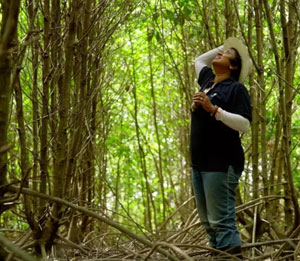
MALAYSIA – When it comes to addressing the climate crisis, this is the decade of action. The private sector must work alongside the government and society to deliver bold solutions to halve global emissions by 2030. Now is the time for collective efforts that make a real impact. According to WWF, evidence increasingly suggests that nature-based solutions – natural systems or processes used to help achieve societal goals – could contribute significantly to minimizing climate change and its effects. In fact, research shows that nature-based solutions and the broader land sector could contribute up to 30% of the climate mitigation needed by 2050 to meet the Paris Agreement’s objective of limiting global warming. In Malaysia – where we have operated for over 50 years – we understood that mangroves were absolutely critical to the ecosystem. READ MORE EUROPE First evidence that black mangroves can produce twins
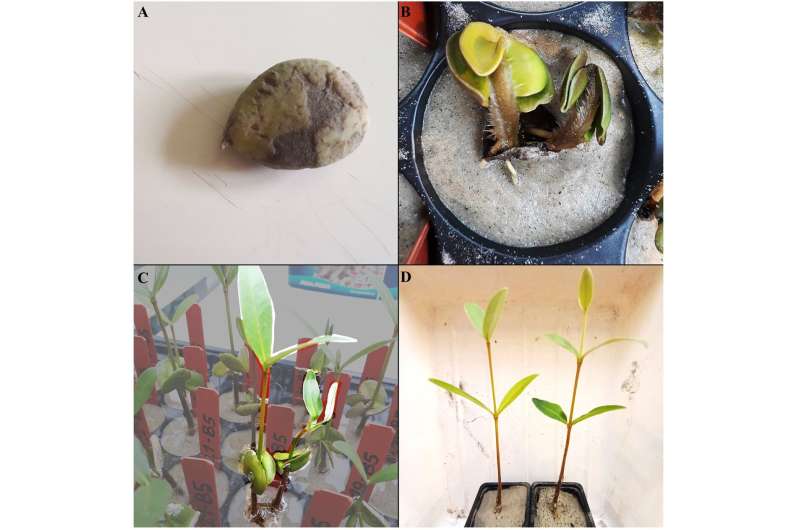
NETHERLANDS – Researchers at Wageningen University & Research have discovered that black mangrove trees can produce twins. While the phenomenon of twin seedlings was seen before in other mangrove species, this is likely the very first time it was observed in black mangrove trees. In the tropical plant nursery in Wageningen several researchers of the Netherlands Earth System Science Center (NESSC) work on growing mangrove trees and tropical seagrasses. In this way, they study the interactions between tropical habitats increasingly affected by climate change and climate-driven anthropogenic pressures. While germinating several black mangroves seeds, NESSC scientists Sara Pino Cobacho and Marjolijn Christianen noticed an extremely rare phenomenon: single mangrove seeds that produced multiple seedlings—or twins. READ MORE OCEANA Socio-economic factors shown to drive mangrove losses and gains
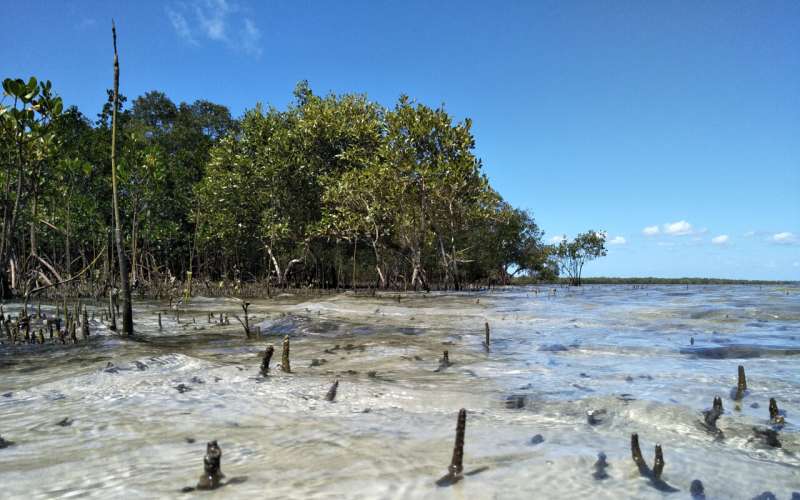
AUSTRALIA – New research into the drivers of mangrove loss over the past 20 years has revealed that most of the degradation can be attributed to socio-economic and biophysical factors, with mangrove cover increasing in some areas. The University of Queensland-led study calculated the change in mangrove cover across coastlines around the world over the past two decades, and is the first look into how local economic pressures, national governance, and conservation policies impact mangrove losses and gains, and how this has changed over time. “Mangrove forests store high amounts of carbon and protect communities from storms, while also supporting fisheries and playing an important role in local economies,” researcher Dr. Hagger said. “To date the main cause of global mangrove loss has been from human land-use impacts associated with conversion to aquaculture ponds, agriculture, and urban development. “What’s most surprising is that, while in most instances of economic growth you’ll find habitat loss and degradation, this study found the opposite. READ MORE
Like this newsletter?
 Pease consider donating to MAP to keep it going.
Giving could never be easier  *Articles in this newsletter may mention practices being used and/or show exagerated results being claimed without proof. Stories are presented here in effort to show mangrove related activity around the world and do not necessarily reflect Mangrove Action Project’s views or mangrove restoration best-practices. | NOTICE 
Mangrove Macrobenthos Managament Conference MMM6 Colombia 2023
On behalf of the Organizing Committee of the MMM6, we want to announce that MMM6 organizers are working to hold the conference in the last week of July 2023 in Cartagena de Indias. We hope to make the official launch very soon. We invite you to follow them on twitter @MeetingMmm6
ACTION ALERTS Do not sacrifice Congo’s rainforests to the oil industry! TAKE ACTION TAKE MAP SURVEY Please see the survey questionnaire we at MAP put together to discover where the shrimp industry is still having major adverse effects on mangroves and local communities.
TAKE THE SURVEY Stop the Dredging – 6.7 million cubic meters of sand from the Addu atoll basin will destroy nature, biodiversity and the natural defences and resilience of this UNESCO Biosphere Reserve. SIGN THE PETITION Keep fossil fuels out of Bangladesh for the health and wellbeing of the local communities, the beautiful regional beaches and forests, the Bangladeshi economy, and our shared climate. SIGN PETITION Stop this total madness Stop the biggest heated oil pipeline in the world — right through the heart of Africa!
CLICK HERE
Like this newsletter? Pease consider donating to MAP to keep it going. Giving could never be easier 
MAP Website en Español
haga clic aqui 13 Year old Linda Li “Mangrove Adventure” from Kid Dream Art School

WATCH NOW 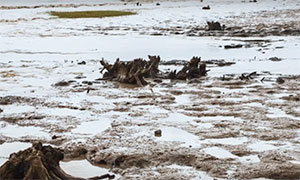
Restoring The Natural Mangrove Forest
Watch movie
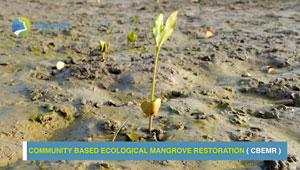
Community Based Ecological Mangrove Restoration in Rufiji Delta VIEW VIDEO
Video: Mangroves for the Future
View Here WANT TO GET INVOLVED?
Follow and Join MAP!    
Like this newsletter? Pease consider donating to MAP to keep it going. Giving could never be easier 

Interested in connecting or working with MAP? Check out our opportunities here 
MANGROVE ISSUES Want to learn more about mangroves?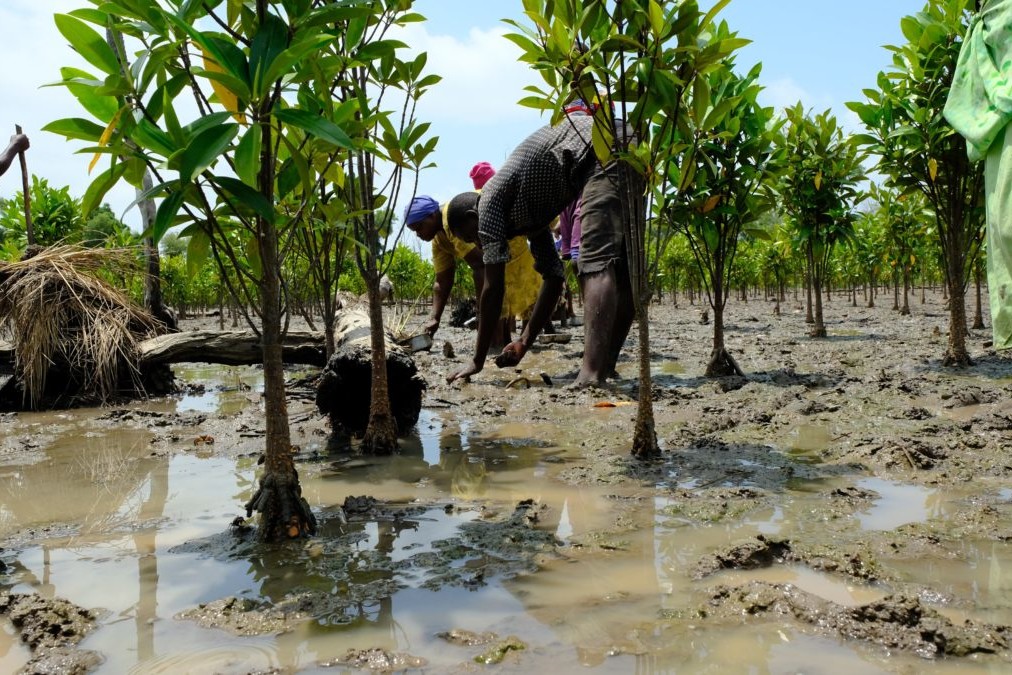
Our short presentation will give you a better understanding of the issues we are working to solve. WATCH PRESENTATION What is CBEMR? Download MAP’s 2 page CBEMR Information Sheet containing links to all MAP’s CBEMR resources – CLICK HERE View MAP’s uploaded Videos at
MAP Video Gallery Question Your Shrimp Consumer/Markets Campaign!
WATCH VIDEO Mangroves: Guidebook to Malaysia – Click Here SHARE MAP’S VISION
CLICK HERE to watch short introductory video. Together we can work “at the roots of the sea”. Our short documentary, Reducing the Risk of Disaster through Nature-Based Solutions : Mangroves 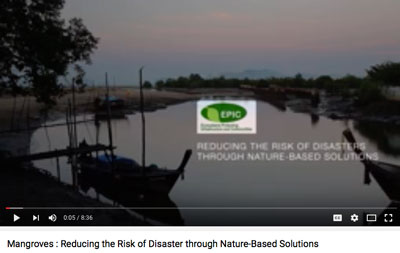
NASA Study Maps the Roots of Global Mangrove Loss
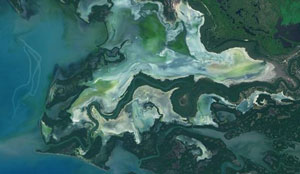
Marvellous Mangroves Curriculum The Marvellous Mangroves Curriculum begins with a simple philosophy – getting future generations to not only learn about, but understand the importance of mangrove forests. VISIT 
The award-winning Marvellous Mangroves (MM) curriculum educates children on the importance of mangroves and their ecological functions, teaching them about modern challenges and mechanisms for sustainability. VIEW VIDEO Marvellous Mangroves Curriculum in Bangladesh – WATCH VIDEO
MARVELLOUS MANGROVES IN BRAZIL
En Portuges 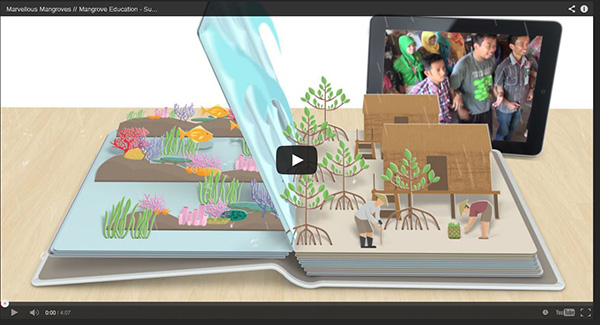
Marvellous Mangroves – A Curriculum-Based Teachers Guide.
Like this newsletter? Pease consider donating to MAP to keep it going. Giving could never be easier 
“Question Your Shrimp” Campaign Question Your Shrimp – is it really sustainable? Sign the Petition
Note to Our Readers: We strive to keep active links in our newsletter. However, due to circumstances beyond our control, occasionally links to stories may become broken. If you find a link to a story is not functioning, please cut and paste the headline into your browser search bar. In most cases you should be able to locate the original story.
Not yet a MAP News subscriber?
Click here to subscribe. 
*Articles in this newsletter may mention practices being used and/or show exagerated results being claimed without proof. Stories are presented here in effort to show mangrove related activity around the world and do not necessarily reflect Mangrove Action Project’s views or mangrove restoration best-practices.
|


























